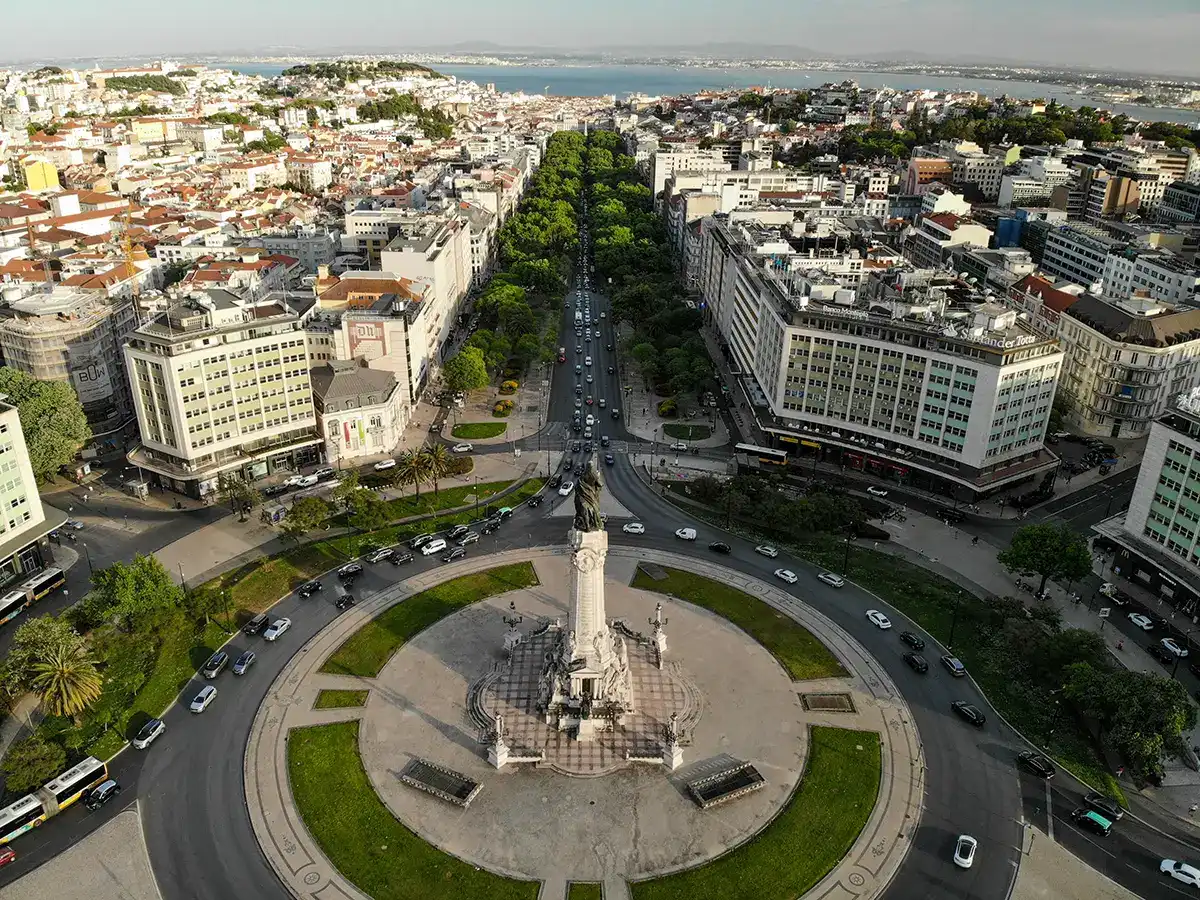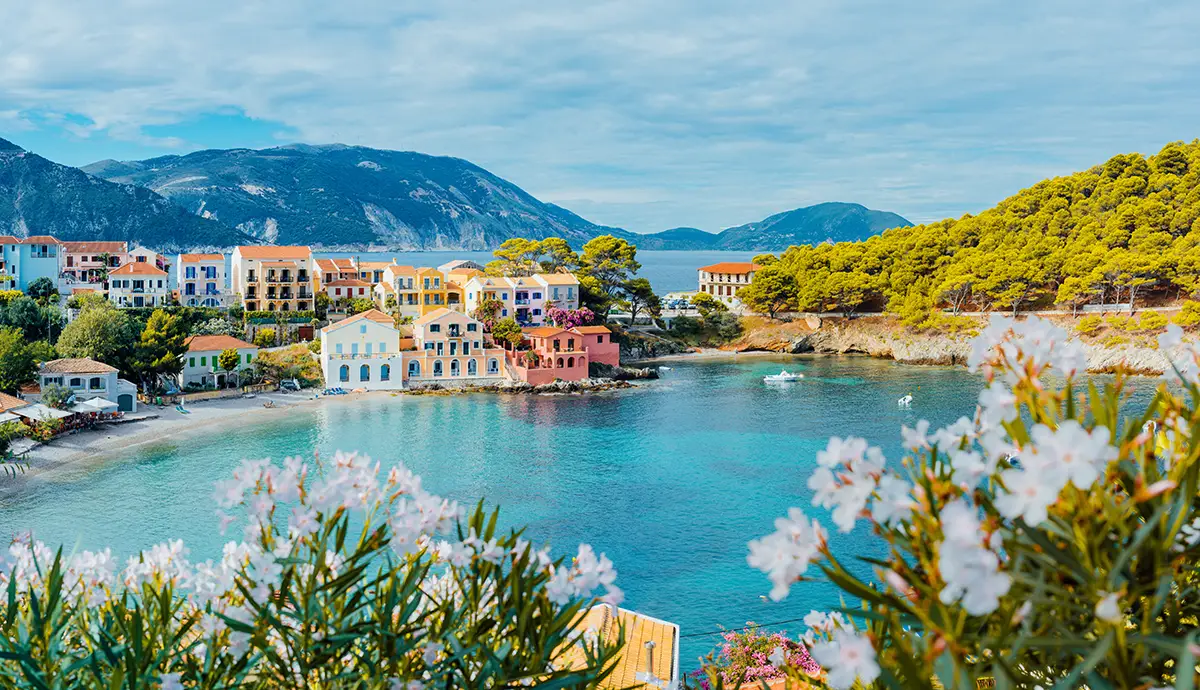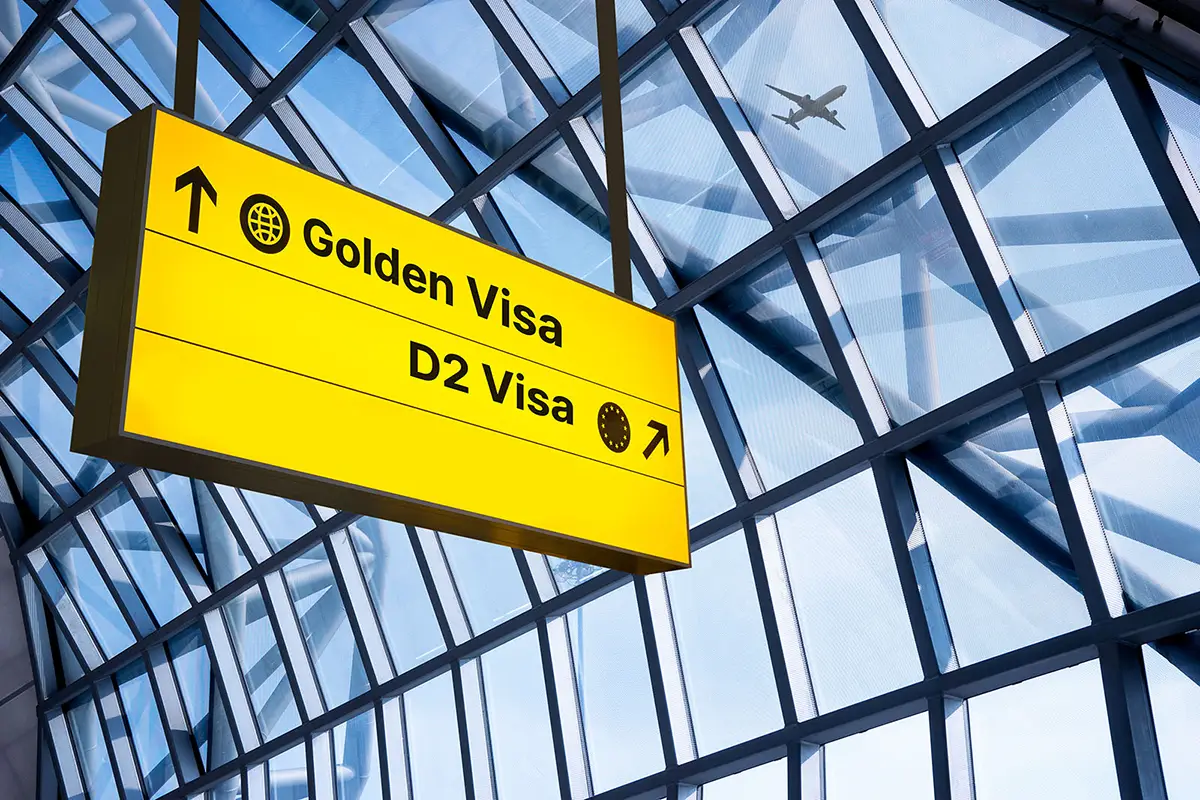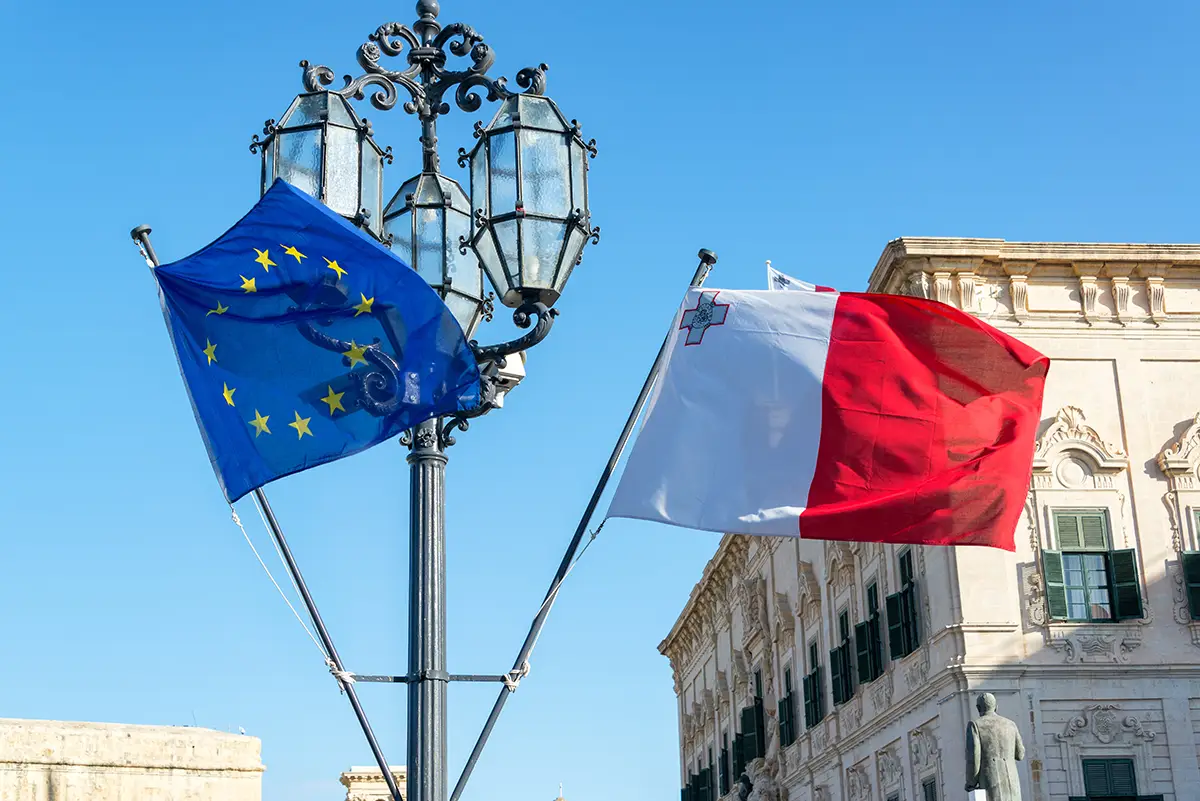The in-depth survey carried out by the Annual Global Retirement Index concluded that, in 2024, Greece is the 7th best place in the whole world for retirement. That result is based on the answers of actual retirees living in different locations, which brings an interesting and more human approach to the list.
If you have ever been in Greece, the presence of the country on this list is barely a surprise, as this destination often makes even younger visitors dream about retiring and being able to calmly enjoy everything Greece has to offer.
Who Can Retire in Greece?
The quick answer is: virtually anyone can retire in Greece. However, when moving to Greece, your primary citizenship will define the steps you will need to take prior to your relocation as, depending on where you come from, you might need extra documents and to fulfill extra requirements.
EU Citizens
European Union citizens can retire in Greece and live there with no need for an extra visa or any kind of residency permit. However, after staying there for three months, a Registration Certificate must be obtained.
Non-EU Citizens
Those coming from non-EU countries will have to get a residency permit to be able to stay in Greece for any period that is longer than 90 days. For retirees, the best way to achieve that is through the Retirement Visa. And if the idea is to move to Greece before retiring and to stay there in the long run, the Greece Golden Visa is the best alternative. The basic requirements to apply for any of those two options are:
- To have a registered address in Greece
- To have a clean criminal record
- To be able to proof a source of income

Benefits of Retiring in Greece
Comfortable Weather Year-Round
Living in a place that has a good climate is an invitation to a more active life, something that is very important for aging well. In Greece, the summers are long and bright, and the winters are mild and cozy and that is one of the reasons why this is one of the best places to retire.
The favorable climate impacts the lifestyle of the retirees, who can enjoy way more time on outdoor activities than they would living in a colder country, getting constant opportunities for socializing.
Affordable Cost of Living
Greece offers a relatively low cost of living, especially when compared to other European countries. That is a great way of making the retirement income stretch, which gives the chance to do more with less. For many, this not only means maintaining their standard of living, but actually upgrading it.
It is also important to keep in mind that, in Greece, retirees get discounts in public transportation, museums, as well as in some entertainment events.
Mediterranean Lifestyle
It is with good reason that Mediterranean living has been, for many decades now, considered one of the healthiest in the world. It all starts with a diet that is based on fresh, local, produce and great quality olive oil. Then, there is the pace of a lifestyle that has a calm demeanor at its core, making everyday life less stressful.
The almost constant sunlight is also very important both mentally, allowing for more social activities, but also physically, as it is crucial to many parts of the human body. Anyone who has experienced this way of living will tell you that it makes an immediate difference to how you feel and see things.

Healthcare Infrastructure
A good retirement is not only about having more time, but also about being able to use that time well and, for that, health is a key factor. Fortunately, Greece has a solid Healthcare System, with very good infrastructure and highly trained staff. That goes for both the private and the public sectors.
Travel, Entertainment and Cultural Options
The newfound time and freedom retirees have is often invested in discovering new places and having new experiences. Greece is a great option for that. The country has many amazing and unique locations to travel to and it is near numerous other countries that are easily accessible. Also, by legally residing in an EU country, retirees will be able to enter any country of the Schengen Area visa-free, and to stay there for up to 90 days.
Throughout the country, cultural, gastronomic and entertainment options are also always available. From ancient sites to restaurants that excel in the amazing local cuisine, from great relaxing beaches to lively events for all ages, Greece offers activities that will make life always full and exciting.
Great Place to Invest In
Not only Greece is a great place to live, but also a solid investment option. The country’s real estate market is very attractive, allowing retirees to buy a property that will only increase in value. Note that property prices will range a lot depending on the location. While Athens is surely the most expensive place to purchase a house or an apartment, many other great locations throughout the territory have incredibly affordable prices.
Bear in mind that, as this is a highly sought-after touristic location, almost anywhere you go is bound to see an increase in value over time.
Greece Retirement Visa: How Does it Work?
If you want to know how to retire in Greece, you should remember that one of the most enticing things about this beautiful country is the fact that it has its own Retirement Visa. Officially called Financially Independent Person Visa, this option allows non-EU citizens that have passive earnings of at least €3,500 per month from fixed sources to obtain a residency permit in the country. If the main applicant wishes to include a spouse, then the mandatory minimum monthly earnings will increase by 20%, or €700,00. Each dependent child will add another 15%, or €525,00, to that amount.
As this program is based exclusively on passive income, permanent job or business generated earnings will not pass through the application criteria. Therefore, this visa is only available to people who have income from a pension fund, rental properties, dividends and any other non-active profits.
It is also important to note that, among the required documents, a medical certificate must be handed in, proving the applicant’s good health and the absence of diseases that could pose a danger to public health.
Golden Visa for Retirees in Greece
Another route to non-EU citizens interested in Greece for retirement is through the Greece Golden Visa. This program opens the possibility of moving to the country even with an active source of income, and it is based on making an investment in the nation. Here are the main investment options available:
- €250,000 in the conversion of a commercial property into a residential one or restoring listed abandoned properties.
- €400,000 in purchase of a real estate property of at least 120 sqm (or approximately 0.029 acres) in regions of the country with fewer than 3,100 inhabitants.
- €800,000 in the purchase of a real estate property in the Attica region (which includes Athens, Piraeus and Thessaloniki), the islands of Mykonos and Santorini and any other area that has over 3,100 inhabitants, like Crete, for example.
Real estate remains the most advisable, since it is based on a tangible asset that will very likely see a great increase in value. The fact that, in Greece, it is still possible to obtain a residency permit through the purchase of real estate, made the Greece Golden Visa became, for many, even more appealing that the one of the most famous Residency by Investment Program in the world, which is the Portugal Golden visa, that currently no longer offers a real estate option.
The Greece Golden Visa enables 5 years of residency that can be further extended. After living in Greece for 7 years, it is possible to apply for Greek Citizenship. With so many options, it is really understandable why Greece is among the best places for expats to live.
Healthcare System in Greece
As many European countries, Greece has a public and universal healthcare system. That means that medical care is available to all citizens and residents either for free or at very low rates. In Greece’s case, the National Health System (ESY), which is mainly funded by taxes, provides a great range of services and treatments, from specialist consultations to hospital care and pharmaceuticals.
Although the aim is to be universal and to serve all population, it is notable that public healthcare in Greece does not reach all places equally, with residents of some islands having to fly to a mainland destination for some types of care.
Overall, retiring in a country with a public healthcare system, even if not a perfect one, is an extra tick on the tranquility box, as it is always possible to count on it as a safety net.
However, the best way to approach retirement life is by also hiring private health insurance. For those coming from other countries, that is not just advisable, but also mandatory as, to apply for a residency permit, it is necessary to have active medical insurance in the country. Greece’s private health sector has even more advanced technology, faster access to services and more personalized care, with very affordable fees.
Tax for Retirees in Greece
After spending more than 183 days in Greece, expats become tax residents in the country. The good news is that retirees coming from other countries will only pay an annual instalment of 7% on their foreign income for 15 years. This applies to those who have not been tax residents in the country for at least 5-6 of the previous years.
Note that, when moving to a new country, as a retired person or not, it is always important to check if your destination and your home country have an agreement that will prevent you from having to pay taxes in both nations.
Also, keep in mind that Greece has a 24% standard VAT, with some items such as food and medicine having reductions, and other taxes such as corporate income and properties' value.
Cost of Living Breakdown: How Much Money Do You Need to Retire in Greece?
We have commented before that living in Greece is affordable. But how affordable? According to Numbeo, an average family of four would be able to live in Greece with €2,786.5, excluding rent.
Here is the average cost of some common everyday expenses in Greece:
Keep in mind that stepping out of Athens or some of the most famous Islands will drastically change your cost of living. As an example, while in Athens the average 3 bedrooms apartment rents for €1,087.30 in the city center, in Corfu it will cost around €776.67 and, in Endessa, will go as low as €440.00.
Banking in Greece
The banking sector in Greece is not so different from any other developed country and it provides all main services you would expect such as banking accounts with checking and savings options, various investment opportunities, the possibility to have debit and credits cards and online baking form both websites and mobile apps. Currency exchange is also an easy process and the main banks in the country are the National Bank of Greece, Alpha Bank, Piraeus Bank, Attica Bank and Eurobank Ergasias.
For retirees coming from other countries, it is important to take the time to understand some key regulations, or to hire specialized assistance, as access to funds coming from abroad may be affected by some regulations.
The documents needed to be open a bank account in Greece are:
- Proof of identity (like a valid passport)
- Greek Tax Identification Number
- Proof of income (like a bank statement or pay slip)
- Proof of address (like a utility bill)
- Certificate of deductions for Social Security
Some additional documents may be needed during the Due Diligence conducted in the process, that takes about a week to be completed.
While there are options that will allow retirees to be exempt from paying account maintenance, saving accounts usually require a minimum deposit.
Best Places in Greece for Retirement
Athens
The country’s capital is, undeniably, the place most well served in almost every area: it has Greece’s biggest airport, many great attractions – touristic and not -, countless restaurants, bars and cafés, stores and services of all kinds. It is also beautiful, historical and is very close to the shore.

Crete
Retirement may be the perfect opportunity to live on an island, surrounded by beauty and a peaceful environment. Crete is a great option in that case, with the plus of being the largest island in Greece and, therefore, the one with the best infrastructure. The cultural heritage, the amazing vistas and the varied real estate landscape turns Crete not only into a great place for a second home, but also to retire.

Thessaloniki
Back to mainland, Thessaloniki, the second largest city in Greece, presents an excellent option for retirees that wish to have it all: a dynamic day-to-day life, with a great deal of entertainment around, while still being right next to the shore, which always adds up to a more relaxed and healthier lifestyle.
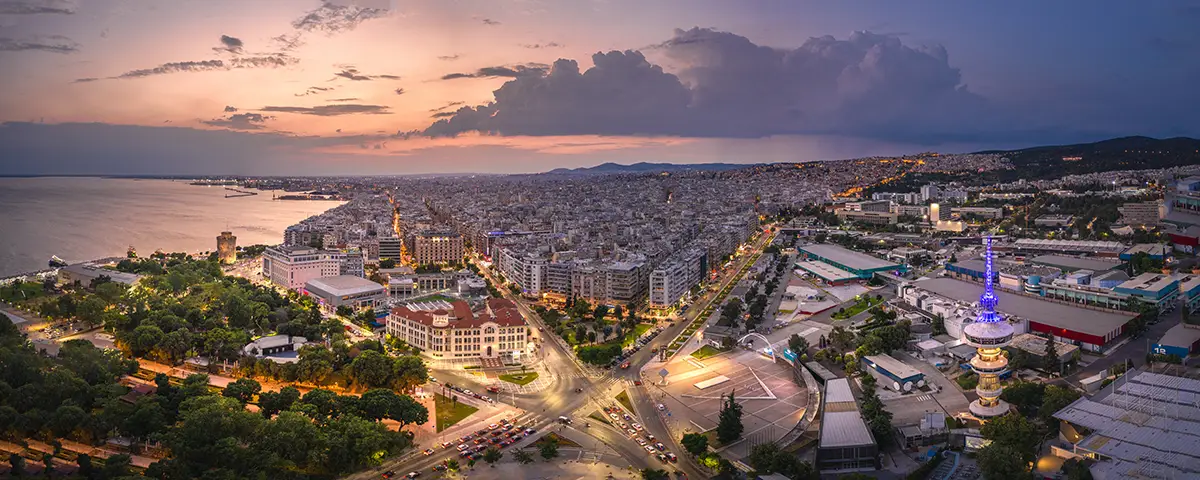
Santorini
There is probably no better time to fulfill a dream than during retirement. With the passive income coming in monthly, extra time to spare, and most likely minimal constraints elsewhere, there is close to no reason to not lose yourself – or find yourself – in the beautiful narrow streets of Santorini, one of Greece’s most famous postcards. The white walls, the blue rooftops, the sunset...when you are there every day to see it, the great number of tourists will probably look more like company than an issue.

Corfu
Home to some of the wealthiest people in Europe, Corfu is a perfect blend of beach and city life. It has all the best nature has to offer, an outdoorsy lifestyle and great gastronomic reputation, while also being very close to mainland. Corfu may not be the cheapest, but its multi-cultural heritage and stunning landscape are worth every penny.
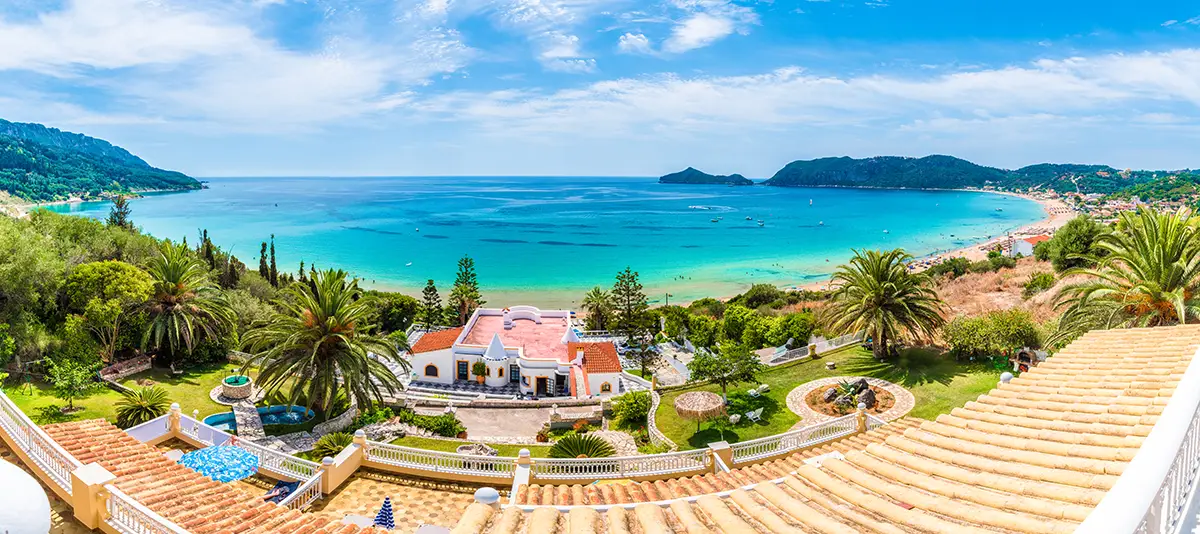
Rhodes
If the plan is to retire to a unique, picturesque place, sunny Rhodes is a fantastic choice. Its strong medieval past blends in with the traditional Greek style, forming a one-of-a-kind scenery. Home to a UNESCO Heritage Site – the Medieval City of Rhodes -, the island also has great natural beauty and many leisure options. Rhodes is the 4th largest island in Greece and also counts on a very good array of services and things to do.
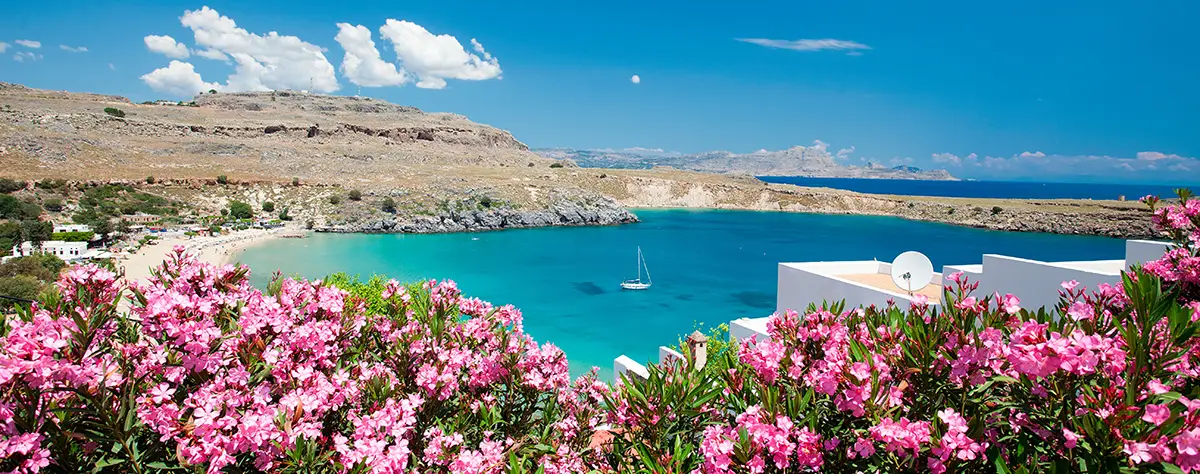
Retiring in Greece: Pros and Cons
Just like anywhere else in the world, Greece has advantages and constraints when it comes to being a home for retirees. All in all, we can say that the positives outweigh the negatives, but here is a more in-depth list of pros and cons that you should consider before making a final decision.
Cons
The Greek Language
Greek can be a rather difficult language to pick up upon, as it has its own alphabet, unlike any other in the world. In smaller, more affordable towns it will be probably hard to find good English speakers and Greek will be the everyday language you will have to learn to get things done.
To work around that, the best thing to do would be to choose a more tourist city where English will be enough to live life with no major hustle.
High Crowded Seasons
As Greece is one of the most popular tourist countries in the world there will be times of the year where streets, beaches, museums, archeological sites and restaurants will be taken by visitors. That will certainly happen during summertime, but spring will also see an increase in the volume of touristic activities.
Retirees can either go with the flow and enjoy the company or to also travel to less populated areas during the high season.
The Complicated Bureaucracy
Navigating the tax system and legal framework in Greece may be complicated for all, with added complexity to expats bringing income from abroad. The best way to go about this is to seek professional help, that will help you stay away from costly mistakes. Keep in mind that Investment Visa is ready to help you with all the bureaucracy prior, during and after your relocation to Greece.
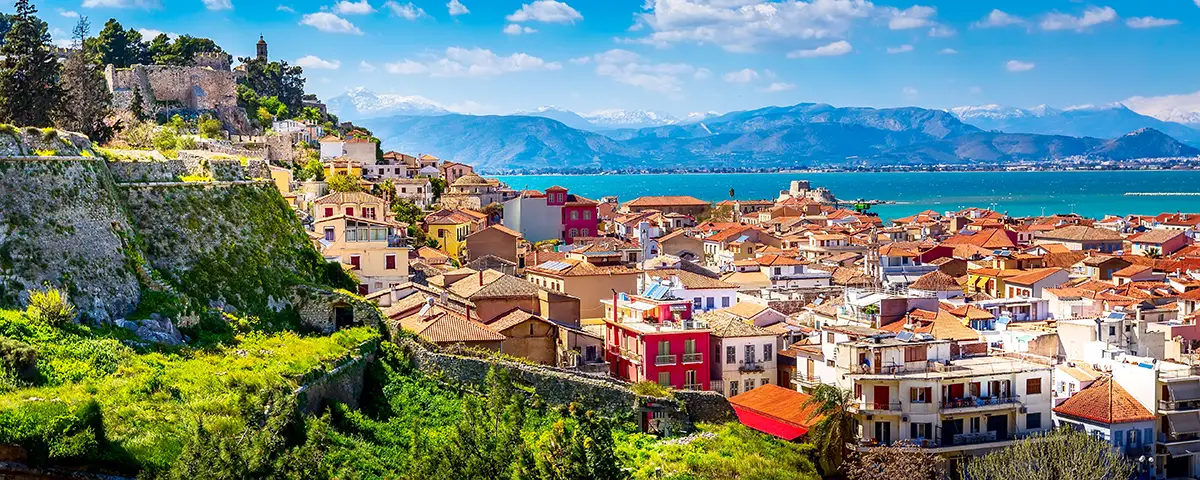
Pros
Laidback Lifestyle
Retirement should be all about resting and enjoying life and a country with a more relaxed lifestyle such as Greece will offer the perfect opportunity to do just that. Also add in the healthy Mediterranean way of living and the amazing nature there is all around, and the aftermath is hard to beat.
Strategic Location
Greece is well located within Europe, giving retirees the chance to easily visit family and friends – and to be visited by them. That also brings all the stability and safety the continent has to offer, which translates into great peace of mind.
Residency Visa Options
The easiness in which a retiree can move to Greece, either through the Retirement Visa or the Greece Golden Visa, makes this a perfect location for those who are about to enjoy the best of life. This factor also makes Greece more appealing to invest in real estate when compared to its Mediterranean neighbors Portugal and Spain.
With Investment Visa, You Get the Peace of Mind You Are Looking For
The best way to escape the cons and enjoy only the pros of retiring in Greece, is to count on the best partner to advise you and to help you make a smooth transition into international retirement. We know all the ins and outs of the relocation process; we take care of the paperwork, and we can even find you the perfect home for this new moment.
Retirement should be all about peace of mind and this is exactly what Investment Visa gives you, whether you choose Grece or any other destination.
FAQs
Yes. Greece has a fixed an annual tax of 7% for foreign income.
That will depend on your lifestyle, number of family members and city you choose to live in. Currently, an average family of four should be able to live in Greece with around €2.800 monthly, excluding rent.
In general, yes. How affordable? That will depend on the chosen city, with Athens, Santorini and Mykonos being some of the most expensive locations.
Both the public and the private healthcare sectors in Greece offer verry good quality and supply of services and procedures, through modern hospitals and knowledgeable medical staff.
Greece is part of the European Union and has Euro as its currency. The official language is Greek, but it is possible to communicate in English in the main touristic cities.
Yes, Greece has its own Golden Visa program that allows citizens with an active income to reside in Greece by investing in the country. The investment options are investing in real estate, making donations or purchasing government bonds.
Yes. Greece has the Financially Independent Person Visa, that allows non-EU citizens that have passive earnings of at least €3,500 per month from fixed sources abroad to obtain residency in Greece.













